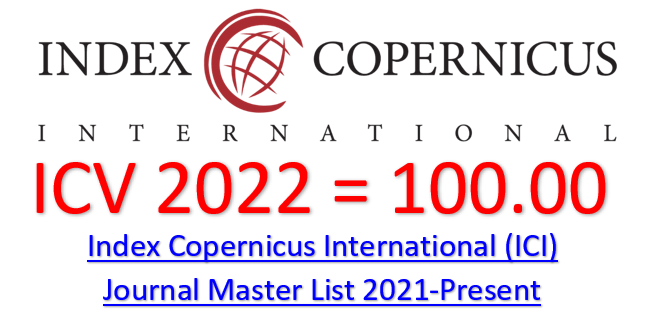Knowledge Levels and Adolescent Attitudes towards the Implementation of BSE (Breast Self-Examination) in Level I Students
DOI:
https://doi.org/10.55018/janh.v4i1.33Keywords:
Knowledge, Attitude, Early Detection, Breast CancerAbstract
Background: Breast cancer is a health problem and a cause of death in women. Many women unknowingly have breast cancer and are detected when it is at an advanced stage. The initial effort to detect breast cancer early is with regular BSE examinations carried out independently by women. However, many teenagers do not know about this BSE examination and rarely do it. This study aims to determine the relationship between the level of knowledge and adolescents' attitudes toward implementing BSE in Level I students of the Lahat Nursing Study Program, Poltekkes, Ministry of Health, Palembang in 2021. The study was carried May 21 to June 10, 2021.
Methods: This study used a quantitative method with a cross-sectional approach. The population in this study was the first-level student of the Lahat nursing study program, with a total sample of 66 female students using the total sampling technique. Data analysis was carried out univariate and bivariate using the Chi-Square test.
Results: The results show that there is a relationship between the levels of knowledge on the implementation of BSE (Breast Self-Examination) with a value (p-value = 0.001), and there is a relationship between attitudes towards the implementation of BSE (Breast Self-Examination) with a value (p-value = 0.001).
Conclusion: It is hoped that the Lahat nursing study program will be able to educate about BSE by placing posters about the early detection of breast cancer with BSE and including material about breast cancer and early detection with BSE in the learning materials especially in maternity.
Downloads
References
Abay, M., Tuke, G., Zewdie, E., Abraha, T. H., Grum, T., & Brhane, E. (2018). Breast self-examination practice and associated factors among women aged 20–70 years attending public health institutions of Adwa town, North Ethiopia. BMC Research Notes, 11(1), 1–7.
Ahmed, A., Zahid, I., Ladiwala, Z. F. R., Sheikh, R., & Memon, A. S. (2018). Breast self-examination awareness and practices in young women in developing countries: A survey of female students in Karachi, Pakistan. Journal of Education and Health Promotion, 7.
Ariani. (2015). Stop Kanker. Istana Media.
Arlisa, A. (2020). Gambaran Stigma Pada Pasien Kanker Payudara. Universitas Muhammadiyah Surabaya.
Chen, L., & Yang, X. (2018). Using EPPM to evaluate the effectiveness of fear appeal messages across different media outlets to increase the intention of breast self-examination among Chinese women. Health Communication.
Dadzi, R., & Adam, A. (2019). Assessment of knowledge and practice of breast self-examination among reproductive age women in Akatsi South district of Volta region of Ghana. PLoS One, 14(12), e0226925.
Dagne, A. H., Ayele, A. D., & Assefa, E. M. (2019). Assessment of breast self-examination practice and associated factors among female workers in Debre Tabor Town public health facilities, North West Ethiopia, 2018: Cross-sectional study. PloS One, 14(8), e0221356.
Dewi, T. K., Massar, K., Ruiter, R. A. C., & Leonardi, T. (2019). Determinants of breast self-examination practice among women in Surabaya, Indonesia: an application of the health belief model. BMC Public Health, 19(1), 1–8.
Gejir, I. N., Agung, A. A. G., Ratih, Ida A. D, K., Mustika, I., Suanda, I., Widiari, N., & Wirata, I. (2017). Media Komunikasi Dalam Penyuluhan Kesehatan (1st ed.). ANDI.
Notoatmodjo. (2014). Ilmu Perilaku Kesehatan (Rineka Cip).
Nurdin, I. (2019). Metodologi Penelitian Sosial. Media Sahabat Cendekia.
Nursalam. (2017). Metodologi Penelitian Ilmu Keperawatan Pendekatan Praktis, Edisi 7. Salemba Medika.
Pamungkas, R., & Usman, A. (2017). Metodologi Riset Keperawatan. CV. Trans Info Media.
Rahman, S. A., Al–Marzouki, A., Otim, M., Khayat, N. E. H. K., Yousef, R., & Rahman, P. (2019). Awareness about breast cancer and breast self-examination among female students at the University of Sharjah: a cross-sectional study. Asian Pacific Journal of Cancer Prevention: APJCP, 20(6), 1901.
WHO. (2017). Global Health Observatory (GHO) data. World Health Organization. http://www.who.int/gho/ncd/risk_factors/bloaod_pressure_prevalence_text/en/
Downloads
Published
How to Cite
Issue
Section
License

This work is licensed under a Creative Commons Attribution-ShareAlike 4.0 International License.

























